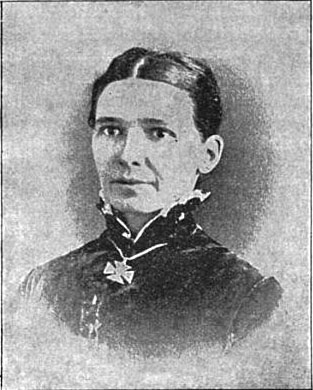Andrea Pass (University of Oxford) Christian Missions in Global History
5 December 2012
This is a guest post by Charlotte De Val, one of IHR Digital’s interns from the University of Leicester.
By the early twentieth-century, single women dominated the British missionary enterprise in India. In a seminar from December 2012, Andrea Pass discusses her paper on the pressures, physical hardship and mental difficulties experienced by single women of the two leading Anglican missionary societies – the evangelical Church Mission Society (CMS) and the United Society for the Propagation of the Gospel (SPG) – in the 1920s, 30s and 40s. Pass focuses on three key issues: the impact of pressure from work on the health of single women missionaries; the difficulties with relationships with colleagues and others; and the difficulties experienced due to challenges to their vocation. The reality of their educational, medical and evangelical service is at the heart of the seminar as Pass emphasises the extreme conditions and expectations of self-sacrifice in the missionary field.
The paper is based on the archives of the SPG in Oxford, the archives of the CMS at the University of Birmingham and the archives of St. Steven’s community in Delhi. A key problem with these sources is accessing women’s opinions on personal issues such as health and happiness. Though the most controversial content was either censored or never collected in official society reports, some controversial issues were recorded but not publicised, and some personal letters are also found in the archives. These personal letters are the most prominent material in the paper, and Pass uses them in conjunction with the official society papers to compare experiences and expectations.
Firstly, Pass explores the impact of illness on missionary work, and the frequency with which female missionaries suffered from nervous breakdown and exhaustion. At the centre of this discussion are the intertwined notions of physical and spiritual fitness. The title quote for this seminar is given as an example; the ‘slough’ in the pilgrim’s progress is reference to the ‘deep bog in which Christians sink due to the weight of sin and guilt’. Pass provides examples to show how physical illness could lead to feelings of spiritual inadequacy and, in reverse, feelings of spiritual inadequacy could lead to physical illness.

Miss Sigoruney Trask one of the Woman’s Foreign Missionary Society of the Methodist Episcopal Church, 1869-1895 (wikipedia)
The subject of relationship difficulties is divided between disputes and friendships. The vast majority of disputes on missions occurred between female colleagues and often were the result of generational tensions. The difficulties caused by friendships, however, are more complex. Pass discusses the exclusivity of friendships and the problems for newcomers as well as the more controversial friendships between missionaries and ‘outsiders’. Pass includes a detailed example of a missionary’s friendship with a Roman Catholic, Lady Alexandra Haley, to explore the issues these friendships could cause. Aside from the belief that it removed women from their missionary work, Pass introduces the medical and psychological discussion of ‘sexual starvation’ and ‘obsessive’ friendships; by the 1920s, she identifies, contemporary psychological vocabulary on ‘sexual starvation’ had percolated into missionary debate.
Finally, Pass discusses the challenges to the vocation of single women missionaries. Most prominent is the conflict of the missionary ‘calling’ with some other better fulfilment of their professional capabilities and familial responsibility – for example, marriage. Pass identifies the problems with conflicting ‘callings’ in the administrative defects of SPG and CMS and contemporary criticisms of the society for failing to address personal crisis. Personal conflicts between members of the societies’ staff are also discussed, as are the theological differences between SPG and CMS and the impact this had on the physical and mental wellbeing of single-women missionaries.
In conclusion, Pass emphasises the gruelling reality of the field which tested the missionaries’ declaration of purpose. In her final remarks, however, Pass is adamant that the negatives of women missionaries’ experiences should not be over-stressed; the majority of women chose to ‘soldier on’ in the faith that ‘out of despair came hope, out of darkness came light.’
